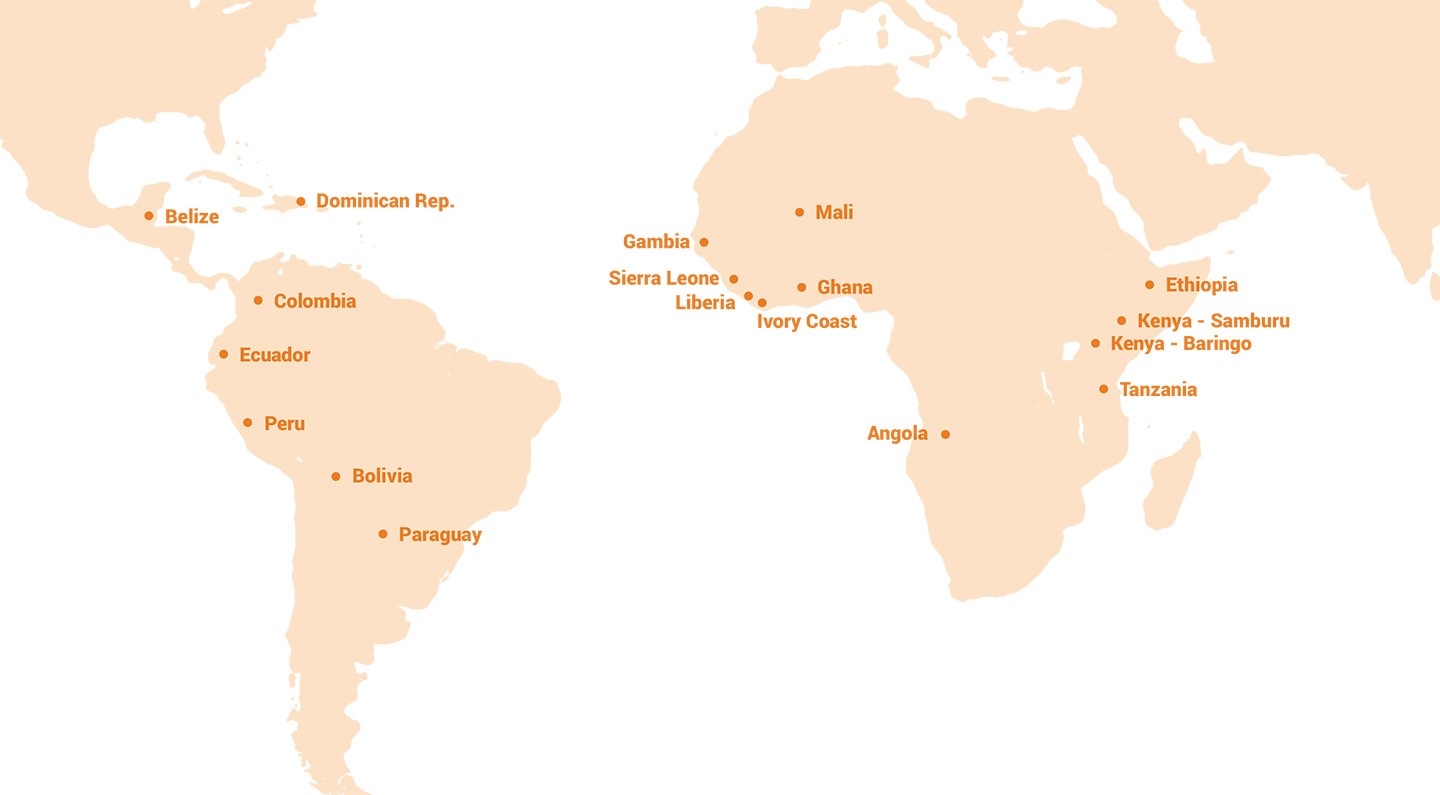We improve access to healthcare and the quality of life of the most vulnerable populations by strengthening clinical laboratories to correctly diagnose and treat patients.
Proximity
People living in remote areas can access high quality diagnosis without having to travel many miles.
Equity
More equal opportunities for underprivileged populations, since they attain equal access to healthcare.
Speed, Quality, and Reliability
Greater agility in diagnosis and treatment. Use of standardized techniques and quality controls for checking results.
Since 2008, Probitas has supported 40 laboratories that enhance access to accurate and reliable diagnosis for over 1 million people across 16 countries

The program runs in 5 phases:
Current Projects
Laboratory in Samburu-Kenya
The rehabilitation of three laboratories in Samburu County in northern Kenya is being carried out with Persons of Influence, a local entity, and the Ministry of Health in an area with a mostly nomadic population and scarce resources for health facilities.
The project aims to strengthen diagnostic health services and improve access to health care for these marginalised communities in the Samburu County. Three laboratories will be rehabilitated and furnished with diagnostic equipment. The pharmacy will also be refurbished in Archer's Post Subcounty Hospital. Technical staff will also be trained.
The project also foresees a cross-cutting community intervention with 10 mobile clinics bringing diagnosis, treatment and awareness to communities without access to health centres.
Laboratory in Gambia
This project foresees the rehabilitation of three diagnostic laboratories at Birkama Hospital, and two health centres Birkama Ba and Farato in the West Coast and Central River regions, in collaboration with the Spanish Red Cross, the Gambia Red Cross Society and local and national health authorities.
In addition to improving diagnostic capacities, the project recognises that effective disease control and reducing pressure on health services requires strong prevention strategies at community level. The project therefore integrates a community health component aimed at raising awareness of disease prevention, promoting healthy habits and increasing the use of available health services.
This dual approach - strengthening health laboratories and empowering communities - will contribute to a more resilient health system, ultimately reducing the prevalence of preventable diseases and improving overall health outcomes in Gambia.
Community health in Chemolingot-Kenya
In 2024, in collaboration with Kaperur CBO, a local entity, we implemented a community health project as part of the laboratory strengthening project at Chemolingot Hospital and two health centres in the area. Nine mobile clinics were conducted with the main objective of early identification and treatment of the three most common neglected tropical diseases (NTDs) in this region: visceral leishmaniasis, trachoma and snakebites.
In six of these mobile clinics, 1,595 children who are under the age of five were screened and an alarming 23.7 per cent of severe malnutrition was found. In 2025, a three-month emergency intervention will be implemented to provide nutritional and therapeutic supplements for these children, and for lactating and pregnant women at risk of malnutrition.
On the other hand, numerous cases of female genital mutilation (FGM), a deeply rooted cultural practice in Kenya, were also detected, affecting thousands of girls and women despite legal prohibitions and increasing awareness campaigns. A pilot project has been launched in two communities with the aim of raising awareness of the dangers of this practice. The novelty of the approach is the active integration of community leaders in the design of the actions.
The Laboratories Program helps to meet the following SDGs

